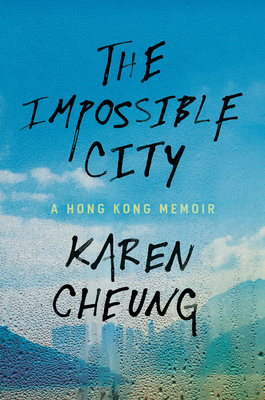Karen Cheung

The Impossible City: A Hong Kong Memoir
Karen Cheung
An insider's account of Hong Kong--from its tenacious counterculture and robust underground music scene, to its unique history of youth-led protest--that explores what it means to survive in a city of broken promises.
Nothing survives in this city. But in a place that never allowed you to write your own history, even remembrance can be a radical act.
Hong Kong has long been known as a city of extremes: a former colony of the United Kingdom that today exists at the margins of an authoritarian, ascendant China; a city rocked by mass protests, where residents once rallied against threats to their democracy and freedoms. But it is also misunderstood and often romanticized, its history and politics simplified for Western headlines. Drawing richly from her own experience, as well as interviews with musicians, protesters, and writers who have made Hong Kong their home, journalist Karen Cheung gives us an insider’s view of this remarkable city at a critical moment in history—both for Hong Kong and democracies around the world.
Coming of age in the wake of Hong Kong’s reunification with China in 1997, Cheung traverses the multifold identities available to her in childhood and beyond, whether that was her experience at an English-speaking international school where her classmates would grow up to be “global citizens” struggling to fit in with the rest of Hong Kong, or within her deeply traditional, multilingual family. Along the way, Cheung gives a personal account of what it’s like to seek out affordable housing and mental healthcare in one of the world’s most expensive cities. She also takes us deep into Hong Kong’s vibrant indie music and literary scenes–youth-driven spaces of creative resistance. Inevitably, Cheung brings us with her to the protests, where her understanding of what it means to belong to Hong Kong finally crystallized.
Weaving together memoir, cultural criticism, and reportage, The Impossible City transcends borders to chart the parallel journeys of both a young woman and a city as they navigate the various, sometimes contradictory, paths of coming into one’s own.